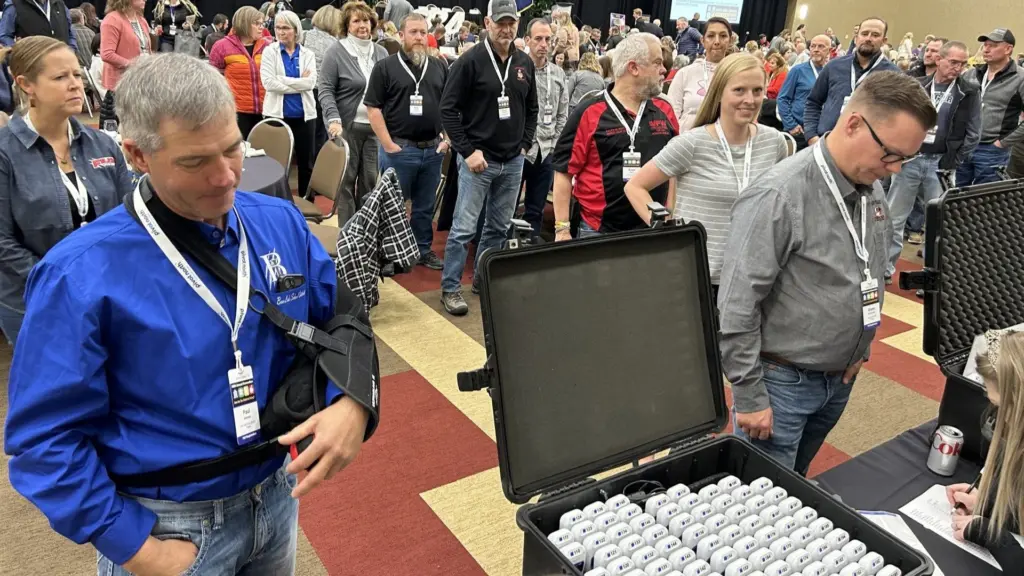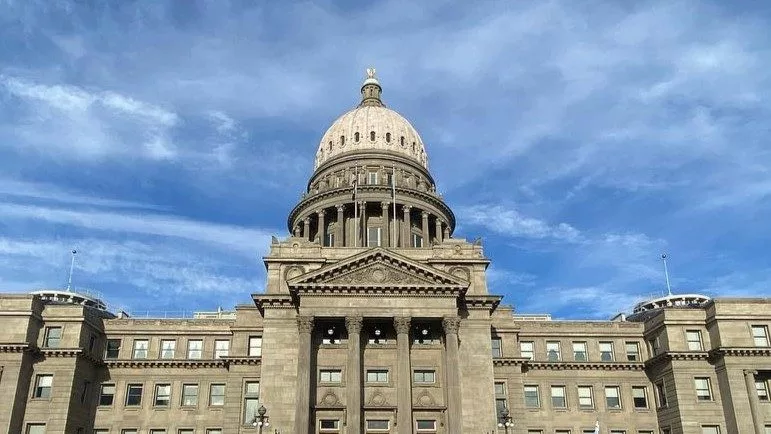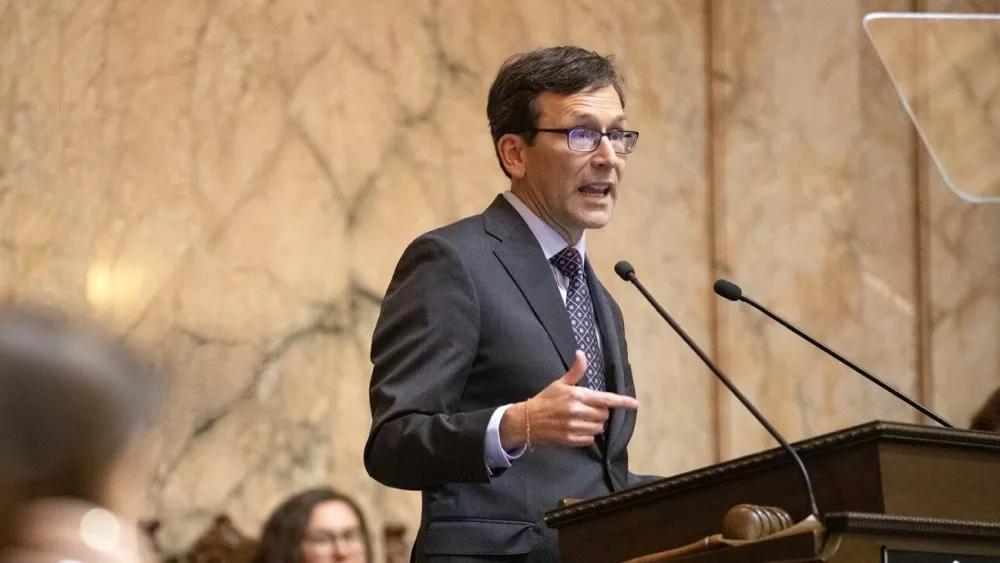Originally posted on IdahoEdNews.org on November 10, 2025
COEUR D’ALENE, ID – School funding is the key theme that runs through the resolutions that hundreds of Idaho trustees will consider later this week. The proposals could guide their lobbying efforts during the 2026 legislative session.
Altogether, trustees statewide are proposing 13 resolutions — down from 17 last year — for a vote at the annual Idaho School Boards Association convention scheduled for Wednesday through Friday in Coeur d’Alene. The ISBA executive board recommends passing seven of the resolutions.
What makes the ISBA platform will determine where the nonprofit’s team of advocates will focus their energy, as they work with politicians, state education leaders and stakeholders to develop, support or oppose bills on districts’ behalf.
Below, we take a look at each resolution and what it could mean for education.
No. 1: Increased state funding for special education services
ISBA recommendation: Do pass
Proposed by: Fruitland School District and Canyon-Owyhee School Service Agency
The gist: The proposal calls for revising the state funding formula for special education, to more accurately reflect the real costs schools incur.
The context: State superintendent Debbie Critchfield and her office have estimated there is a growing $100 million gap between what districts and charters spend on SPED and what the state reimburses.
The resolution says chronic special education underfunding has created inequities among districts and undermines school boards’ ability to make strategic decisions that best serve all students.
Critchfield plans to ask legislators for a $50 million increase in SPED spending. She was unsuccessful at securing a much smaller ask, $3 million for the highest need students, during the 2025 session.
No. 2: Broaden the definition of rural school districts
ISBA recommendation: No recommendation
Proposed by: Fruitland
The gist: The resolution proposes a change in the threshold of what constitutes a rural school district to allow more districts to qualify. The proposal would increase the enrolled student threshold for a rural district from fewer than 20 to fewer than 25 students per square mile and increasing the county population threshold from 25,000 to 30,000 residents per county.
The context: Eighty percent of Idaho districts fall under the current definition of “rural.” But with the massive growth Idaho is experiencing, several counties are likely to lose their rural designation in the next few years. The executive board said they have concerns the expanded definition could take away from the state’s extremely small districts. The neutral recommendation will allow Fruitland leaders to make their case during the ISBA conference.
No. 3: Support for federal funding changes
ISBA recommendation: Do pass
Proposed by: Marsing School District, ISBA executive board
The gist: The resolution advocates for removing third-party administrators from federally funded grants to schools, instead sending funds to the Idaho Department of Education and then to schools.
The context: The resolution fits with Critchfield and the Republican Party’s goals to reduce the federal bureaucracy and control over schools.
No. 4: Maintaining open enrollment for online schools in traditional school districts
ISBA recommendation: No recommendation
Proposed by: Wilder School District
The gist: The resolution advocates for allowing students to enroll in any online school in Idaho, regardless of their home district.
The context: The goal is to maintain open enrollment for both brick-and-mortar and online schools. Last session, lawmakers scrutinized the Idaho Home Learning Academy — a mushrooming statewide online charter — but could not agree on a bill to address the state’s growing virtual school sector. The Office of Performance Evaluations, the Legislature’s auditing arm, is working on a report on IHLA.
No. 5: Opposing public funds to private schools
ISBA recommendation: Do pass
Proposed by: Boise School District
The gist: The resolution opposes Idaho’s private school choice program, which allows families to receive a tax credit to pay for private or homeschool.
The context: House Bill 93, passed in 2025, allocated $50 million for tax credits. The ISBA resolution argues that, in other states with similar programs, student achievement suffered and most money went to families with children already enrolled in private school. Private schools do not have to enroll all students and are not held to the same standards as public schools, the resolution argues.
Learn more about HB 93 here.
No. 6: Revising definitions of electronic smoking products and nicotine delivery systems, and expanding how schools can use tobacco product tax revenues
ISBA recommendation: Do pass
Proposed by: Blaine County School District
The gist: The proposal would update Idaho’s tobacco tax laws to include all nicotine products, including vapes and nicotine pouches. The resolution also calls for an expansion of the allowable uses for tobacco tax revenue to include vape education and cessation programs, the hiring of mental health counselors and school resource officers.
The context: Vapes and nicotine pouches, like Zyn, are not taxed as tobacco products. Idaho schools receive part of the tax revenue from tobacco tax and use the funds to help support safe and drug-free schools, but do not receive funds for sales of new and extremely popular nicotine products.
No. 7: Moving administrators up on the career ladder if they return to the classroom
ISBA recommendation: Do pass
Proposed by: Swan Valley Elementary School District
The gist: Teachers move up Idaho’s salary career ladder based on educational and work experience, but they also are required to receive proficient or higher evaluations to move up. There is no outline for placing superintendents or district-level staff members back on the career ladder if they return to the classroom. The proposal would allow administrators to advance on the career ladder, even though they undergo a different evaluation process than teachers.
The context: District-level school leaders are not evaluated the same way as teachers and therefore may not be able to advance on the career ladder, even with high marks, if they return to the classroom.
No. 8: Excluding non-residents from the 60% capital gains tax exemption
ISBA recommendation: No recommendation
Proposed by: West Bonner County, Basin and Teton school districts
The gist: Non-residents are allowed to receive the same 60% capital gains tax exemption for Idaho-based investments or property sales. The resolution wants non-residents to pay the full tax, with that revenue going to K-12.
The context: Idaho spends the least in the country per student, according to the Education Data Initiative. The goal of the resolution is to find ways to increase state-level tax revenue for schools. While the ISBA executive board broadly supports that goal, the board encouraged districts to narrow their scope and consider corporate interests, like agriculture and timber, that might be impacted.
No. 9: Recognizing postsecondary teaching experience in career ladder placement
ISBA recommendation: Do pass
Proposed by: Ririe School District
The gist: The proposal would allow districts to include postsecondary instruction experience when determining an educator’s initial career ladder placement.
The context: Currently, the career ladder partially recognizes college-level experience — or doesn’t reflect it at all. The resolution says a career ladder change would promote recruitment and retention of K-12 teachers who have prior post secondary experience.
Resolutions 10-12 were withdrawn.
No. 13: Supporting the autonomy and governance of the Idaho High School Activities Association
ISBA recommendation: Do pass
Proposed by: ISBA executive board
The gist: The resolution opposes legislative control over high school athletics.
The context: Legislators have pushed to regulate athletics and extracurricular activities — which the nonprofit IHSAA and local school boards now oversee.
No. 14: Open enrollment program and building capacity limits
ISBA recommendation: Do pass
Proposed by: Boise district
The gist: The proposal suggests allowing schools to refuse transfer students based on building and program capacity.
The context: The 2023 Legislature modified open-enrollment regulations. Districts can refuse transfer students only based on grade-level capacity. Districts argue that they should be able to reject students based on capacity in career-technical, gifted and talented and special education programs. Building capacity should also be a reason to reject transfers, the proposal argues, because while a school can be overcrowded even when some grade levels are under capacity.
The proposal mirrors an ISBA resolution that passed in 2023, but was not incorporated in the law.
No. 15: Funding formula principles
ISBA recommendation: Do pass
Proposed by: Boise district
The gist: The proposal argues for nine principles that should be part of a new funding formula — including predictability, adequacy, transparency, stability, uniformity and thoroughness and quality staffing.
The context: Lawmakers and education leaders have haggled for years over rewriting the formula, last revised in 1994. This year, the Senate passed a bill that would have provided additional money for special education students, English learners and other demographic groups. It stalled in the House.
No. 16: School age and accountability
ISBA recommendation: No recommendation
Proposed by: Caldwell School District
The gist: The resolution proposes changing the required school age from 16 to 18, unless a student has graduated early or received a GED.
The context: Students can drop out when they turn 16, but schools are still held accountable for two years of education that occur when most students are older than 16. The resolution has passed several times but there has been no legislative support.
Find the full text of all the resolutions here. ISBA’s annual convention is set for Nov. 12-14 in Coeur d’Alene.
Reporter Kevin Richert contributed to this story.





